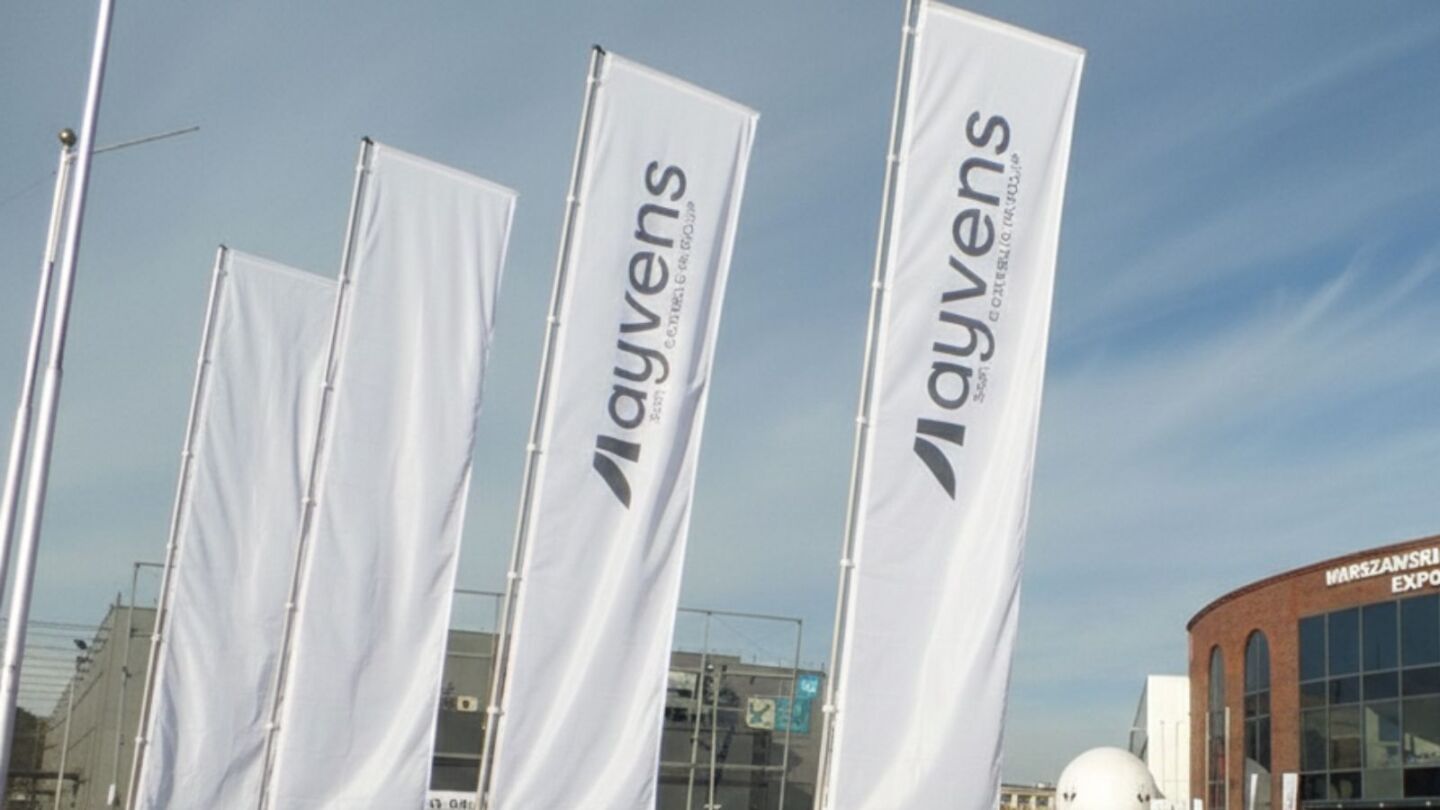Ayvens about the Harmoney collaboration
Benjamin Gérard, Secretary General of Ayvens Belgium, the market leader in full-service leasing in Belgium, shares his perspective on the collaboration with Harmoney.

About Ayvens
Ayvens (previously known as ALD Automotive | LeasePlan) is a prominent global provider of sustainable mobility solutions, offering full-service leasing, flexible subscription plans, fleet management, and multi-mobility services to a diverse client base that includes large corporations, SMEs, professionals, and private individuals.
Operating directly in 42 countries, the company has the widest geographical coverage in the industry. It is leveraging this position to lead the transition to net zero and to drive the digital transformation of mobility through innovative, technology-driven services that support the widespread adoption of sustainable transport.
Challenge: scaling compliance efforts without scaling the workload
As regulatory frameworks evolve, financial institutions must constantly adapt to stay compliant. One of the challenges Ayvens faced involved gathering additional customer data to meet updated know your customer and anti-money laundering requirements. Given the size and diversity of Ayvens’s customer base, manually reaching out to clients, tracking responses, and verifying data would have significantly strained internal resources. Such a manual process risked delays, inconsistencies, and potential compliance gaps. Ayvens Belux needed a smarter, scalable way to manage this outreach and ensure regulatory standards were met.
Solution: automated workflows that boost compliance efficiency
To address these challenges, Ayvens implemented Harmoney’s customer onboarding and client lifecycle management workflows. This allowed them to fully digitize their customer outreach and compliance operations. The Harmoney platform automatically identifies missing KYC data, initiates outreach to customers, and ensures structured follow-up through automated reminders and personalized communication flows. As a result, the process not only became more efficient but also more customer-friendly. The streamlined approach has significantly increased response rates and enabled Ayvens to stay ahead of regulatory requirements without compromising internal resources or customer experience.
Modules Used
Ayvens chose to implement a combination of the off-the-shelf suite consisting of 12 modules, configured according to their internal processes and risk parameters.
Automated data and document enrichment
Making the whole process frictionless for both clients and employees, Harmoney extends the potential of external and internal databases by connecting with external data providers such as Bureau Van Dijk, Dun & Bradstreet and Creditsafe/Graydon and country-specific public databases.
These connections allow for automated data and document enrichment, both for private individuals and legal entities. This automation can include UBOs and board members and could extend to the crucial documents needed to onboard legal entities, such as deeds of incorporation and by-laws.
While these pre-filled journeys enhance customer experience, they also generate efficiencies for employees, since all data and documents are easy to find in the system without the need for handovers.
And from a client lifecycle management perspective, client data and risk assessments are continuously kept up to date. Daily automated checks for potential changes in external databases can trigger intelligent workflows, potentially leading to renewed risk assessments. In turn, this could initiate additional data or digital document collection, including validations of these changes by the end-client.
UBO verification and confirmation
In an ideal world, external databases would be 100% reliable. But, the reality is that a time-stamped confirmation by the end client is the only way to be confident about data quality.
With pre-filled information, legal entities can be invited to digitally confirm or modify UBO-related information.
Legal entity managers can also easily initiate workflows in parallel to collect relevant data or proof of ID of these UBOs, reducing the administrative burden. Fraud detection services for ID documents can be included for reassurance and to meet regulatory requirements.
Digitally signed confirmation timestamps provide a clear audit trail and can automatically generate triggers for future frictionless client outreach if reconfirmation is part of your client lifecycle management processes.
With Harmoney, the UBO confirmation process, often perceived as tedious and cumbersome, is rendered simple and straightforward.
AML, PEP, sanction, embargo and adverse media screening
Whether it’s in the onboarding acceptance process or as part of client lifecycle management, Harmoney caters for automated screening. Screening providers such as LexisNexis, Refinitiv, and Dow Jones are already integrated within the Harmoney solution. Financial institutions can keep their screening providers of choice and Harmoney easily links to them via an integration layer.
This brings all the benefits of integrating the Harmoney solution while maintaining risk screening continuity, with features such as ‘fuzzy matching’. Detailed reports on ‘hits’ can be automatically generated and linked to the private individuals or legal entities concerned. In many cases, institution-specific blacklists are also included in the automated screening.
Comprehensive risk scoring engine
The risk scoring module can be configured according to the risk matrix of the individual financial institution. The scoring engine can manage a high level of complexity and can include a range of risk parameters relevant to every stakeholder involved, whether UBOs, insured persons, company groups or other related parties, or related to the type of contract or product.
Depending on the risk scoring outcome, a range of workflow configuration types can be defined to meet your exact needs: from automated approval processes and requests for further information via the client outreach module, to escalation workflows and the acceptance/rejection decision-making process.
A clear track of the screening as well as every decision and interaction is retained to provide a continuous audit trail in the contract or client file.
Reporting and analytics
Rigorous reporting is crucial in providing insights at client, contract, and portfolio level. To enhance operational management and the customer experience, data can be generated to analyse and monitor processes and customer behaviours, as well as how efficiency can be improved among teams of employees.
All data stored in Harmoney can be made available through reporting. Dashboards displaying a specified range of metrics in the Harmoney application facilitate work process effectiveness.
Interested in discovering more about our innovative solution?
Reach out to us for further details!